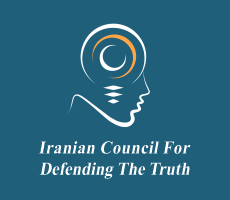Author: Dr. Tim Anderson
Publisher: Clarity Press, 2019
In the series of 21st century wars in West Asia, initiated by Washington in the name of a ‘New Middle East’, resistance forces are prevailing. Like all imperial gambits before it the plan has been to subjugate the entire region – this one in the name of US-led ‘freedom’ – to secure privileged access to its tremendous resources and then dictate terms of access to all other players. On various pretexts Afghanistan and Iraq were invaded and Libya was destroyed. This book addresses myths about the wars and the resistance, while attempting a partial and provisional history of the conflicts.
The key to a definitive defeat of Washington’s ambitions lies in greater regional integration of the resistance forces. That integration is led by Iran, the undisputed leader of an ‘Axis of Resistance’ to foreign domination and Zionist expansion. Tehran’s position has less to do with its religious identity and more to do with its principled independence, great capacity and independent political will.
This book, Axis of Resistance: towards an Independent Middle East, follows the author’s 2016 book The Dirty War on Syria. It examines the end of the war on Syria and the wider elements of the regional conflict, in particular the prospects for a democratic Palestine, the character of the Resistance and the role of Iran. It draws attention to these broad leitmotifs underpinning each particular history that are key to understanding both the parts and the whole:
- A single, essentially colonial impetus drives each particular US aggression from Libya to Afghanistan. These hybrid wars utilize propaganda offensives, economic siege warfare, terrorist proxies, direct invasions and military occupations followed by repression via client states. The aim is to keep resistance forces fragmented.
- Just as each aggression forms part of a broader Washington strategy, similarly the integration of the resistance in particular remains critical to its success.
- The Resistance has a common character but no idealised personality or ideology. However the common features are a demand for popular self-determination and for accountable social structures that serve broad social interests.
This book addresses myths about the wars and the resistance, while attempting a partial and provisional history of the conflicts. A focus on resistance can help readers understand the defeat of great powers, something not possible for any analysis which begins and ends with power. This book is written, not so much for those who are committed to western myths, as for those honest and curious people who engage with such myths.
The book is a contribution to a broader group of independent histories of the US-led 21st century wars against the peoples of the Middle East or West Asia. Many such histories are necessary, in light of the intense propaganda which accompanies each bloody conflict. Two decades of neo-colonial aggression against the Arab and Muslim peoples of the region have destroyed more than 2 million lives and have shattered many critical social structures. Yet the aggressors are unrepentant and there is, so far, no end in sight.
This book is divided into four sections. Part 1 on ‘Imperialism and Resistance’ begins with introduction, and then turns to some broader reflections on self-determination and empires. There follows a chapter on the role of sanctions as a form of economic siege warfare, then a discussion on the myth of neutrality during war and some necessary elements of method in the study of war.
Part 2 ‘Collapse of the Dirty War on Syria’ comprises a series of thematic essays on the final years of the war on Syria. It begins with some updated themes from the author’s 2016 book, which addressed both the ‘humanitarian’ and the ‘protective’ intervention rationales of that dirty war. That includes an update of key evidence which shows that all the internationally proscribed terrorist groups in Syria and Iraq were backed by the US-led coalition, in attempts to destroy the independent Syrian state and to destabilize and weaken the new Iraqi state. A more detailed chapter on ‘The Human Rights Industry in Humanitarian War’, illustrated with examples from Syria, shows the use in hybrid war of embedded NGOs and other war propagandists. Particular attention is paid to the role of the corporate-NGOs Human Rights Watch and Amnesty International. The section concludes with reflections on left illusions about the so-called Syrian revolution, and the use of refugees as instruments of war propaganda.
Part 3 ‘The West Asian Alliance’ introduces three other nations of the regional resistance: Palestine, Lebanon and Iran. ‘The Future of Palestine’ reviews the longstanding conflict generated by the Israeli colony which in recent decades has become an apartheid state. ‘Hezbollah and the Regional Resistance’ examines myths about the leading party of the Lebanese Resistance, in particular the accusations of sectarianism and terrorism, before explaining the rise of Hezbollah in Lebanon and its wider influence, particularly on the popular resistance in Iraq. ‘Why Iran Matters’ reviews the leading state of the Axis, charting its development from the 1979 Revolution and documenting its human development achievements and challenges. The constant and multi-faceted war against Iran helped drive this nation’s emergence as the heart of the regional resistance. The section concludes with ‘Towards West Asia’, which sums up the prospects for an independent region no longer defined as the ‘Middle East’ of a Eurocentric world. That transition will require commitment, sacrifice and regional unity.
A final chapter tells the more personal story of this writer’s own journey in documenting and defending other peoples. It is a reflection on free and independent expression in an abusive, colonial culture. Nevertheless that struggle is a necessary process for anyone who believes in understanding great conflicts, and in sharing those understandings with others.
Here are some comments from international scholars and figures on Anderson’s book:
“Western policy has been worse than a crime it’s been a blunder. Tim Anderson’s epic study shows what a crime, what a blunder it has been; and how ugly the monster which now stalks the land. My land, your land, the whole of humanity. It is a must read.” George Galloway, British politician.
“For decades now Western understanding of the conflicts in the Middle East has been obfuscated by the effects of both intensive propaganda and ideology. Whether you agree or disagree with Anderson’s arguments, Axis of Resistance is an important starting point for much needed soul searching, public debate and self-reflection by publics, academics and politicians. Such debate is essential if we are to rein in the West’s imperial ambitions, which have caused so much suffering and destruction, and allow genuine independence for all the peoples of the Middle East.” Dr. Piers Robinson, Organization for Propaganda Studies, Former Professor of Politics, Society and Political Journalism at Sheffield University.
“Axis of Resistance will take its place alongside the few books worth reading on how and by whom the flickering lights of the imperial twilight of ‘the West’ in the Middle East were finally extinguished.” Dr. Jeremy Salt, Middle East historian, former professor Melbourne University and Birkeit University.
“An excellent book by an exceptional author and activist who understands well the shakers and makers of the region within the new world order shaped by rising global forces.” Dr. Amal Wahdan, Veteran Palestinian activist, Al Quds / Jerusalem, Occupied Palestine.

